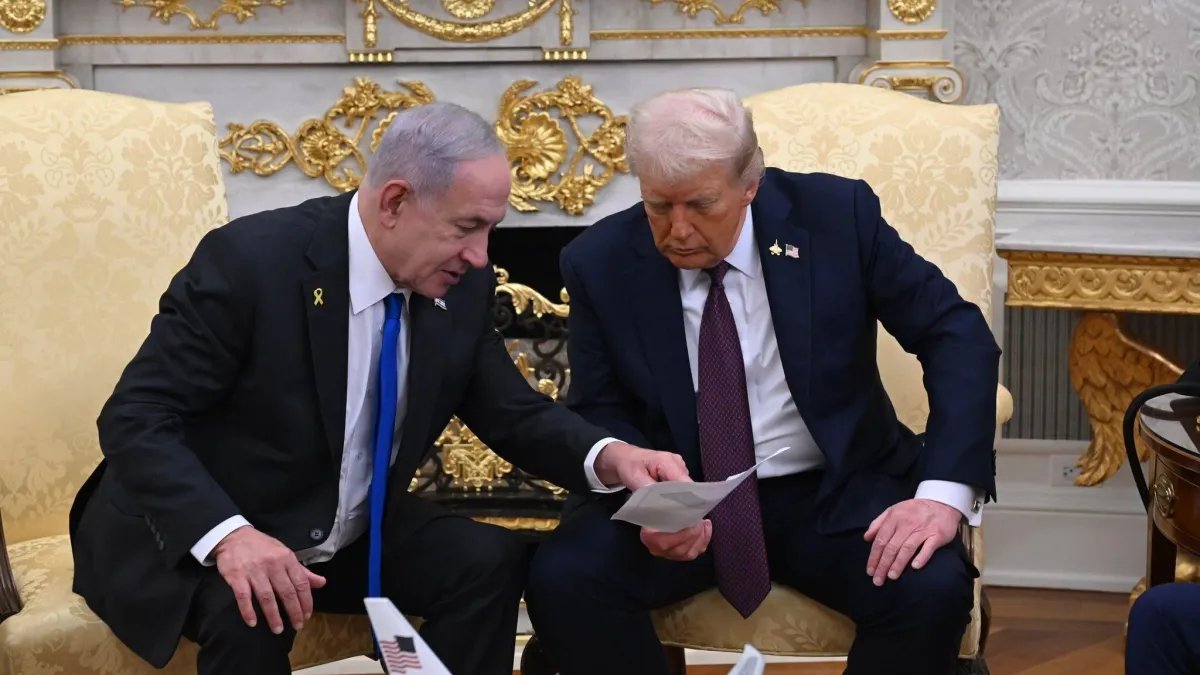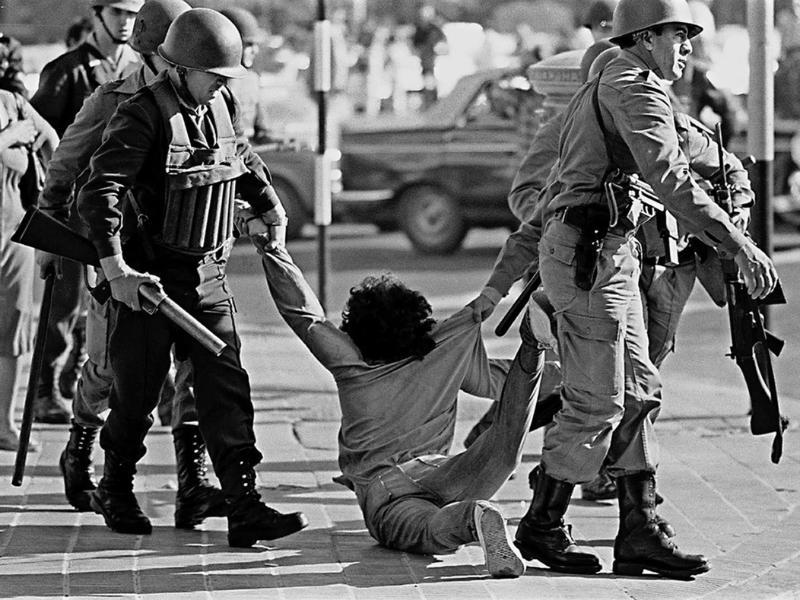The Constructivist Analysis of the Israel-Gaza Conflict in 2025: Peace Discourse versus the Historical and Geopolitical Reality of Expansion and Systemic Violence.
n International Relations, conflicts between different nations and groups are a subject of study and analysis to understand the dynamism of the international system. The world in 2025, in this sense, is surrounded by conflicts of different natures and configurations. From the geopolitical disputes between China and the United States (USA) to the Russian-Ukrainian conflict, clashes between nations are present in a highlighted manner in the life of the current international system. Nevertheless, the one that has garnered the most public attention had a “pause” in recent weeks. On October 10, 2025, two years after the beginning of the conflict between Israel and Hamas, a ceasefire, much demanded by the international community, was announced. At first, a ceasefire would mean a chance for the involved parties to reorganize through a stipulated period of “peace.” Therefore, the international community, as well as other countries that served as truce mediators between the parties, such as Qatar, Egypt, the USA, and Turkey, should “celebrate” this milestone, especially since it signifies a period when innocent lives will be spared. However, what is there to recognize as positive about this ceasefire?
First, it is important to have a macro view of the conflict and recognize that the situation in Gaza is not something that developed over the last few years. In reality, it is a conflict that has been dragging on since the 20th century, shortly after the creation of the State of Israel following World War II. Bearing this in mind, it is possible to verify that Israel has a plan for the Gaza Strip region, even if its authorities keep it implicit in their speeches. In this context, in the study of international relations, a theory that aids in understanding this reality is called constructivism. Practically, constructivism is a way of studying social relations where humans are social actors within a system of rules (structure). The relationship between actor and structure is continuous and self-reinforcing, given that the government is composed of individuals who follow the rules to achieve specific objectives. On the other hand, the rules delimit the scope of action for individuals; that is, there is an expectation regarding “what” individuals will do. Thus, constructivism allows us to see that, in the case of the Israel-Gaza conflict, there is a self-reinforcing system in which actors follow rules to achieve objectives. After years of conflict, it is essential to note that Israelis are in a different position compared to the Palestinian people, for reasons such as the formal recognition of their sovereignty by the international community—thus, a formally recognized territory exists—and the existence of an army and government. Conversely, the Palestinians lack a formal government, as well as a formal and internationally recognized territory, making it impossible to read them as a nation-state, according to parameters imposed by international law. Therefore, the relationship between the two actors can be understood through this theory by visualizing that it has been constructed over time and by noting the intrinsic differences between Israelis and Palestinians. The differences, in turn, serve as fuel for the conflict and can be understood as one of the reasons for the violence committed, at least in an official discourse.
Nonetheless, because international relations are surrounded by different power systems, it is crucial to note that Israel is an allied nation of Western powers. These powers, in this sense, use their ties with Israel to amplify their interests in the Middle East, increasing their presence, even if indirectly. One can use as examples the moments during the Cold War, where Israel positioned itself as an anti-communist and pro-Western nation, or in the post-Iranian revolution period, where it carried out attacks against other Middle Eastern countries to contain the effects of this movement. In this regard, constructivism, besides offering a lens for viewing different social systems, also emphasizes discourse—that is, what is said. Because Israel positions itself as a pro-Western nation, in addition to the great influence of the USA around the globe, the latter acted as one of the main mediators of the conflict between Israel and Hamas. After many deaths and massacres by Israel against Palestine, public opinion around the world, exuberantly, demanded a ceasefire and punishment for Israel for the actions carried out in the Gaza Strip. Thus, President Donald Trump was a central actor in the unfolding of the ceasefire sealed on October 13, 2025. According to G1, his speech in the Israeli parliament highlighted expressions such as “end of an era of terror and death”, “new dawn for the Middle East region,” and praise for Israeli Prime Minister Netanyahu. The ceasefire, therefore, was conditioned by the release of hostages and prisoners from both sides and was received with acclaim by the parliamentarians. What remains implicit in the speech, however, leaves room for interpretation regarding the next steps in the conflict’s progression. Through a constructivist perspective, it is verified that Trump, through his discourse, deepens the ties between the USA and Israel, in addition to not condemning the systemic violence committed in different ways—be it through the killing of innocents or the use of hunger as a weapon of war—by Israelis. In other words, it is expected that the USA, despite the brutality and barbarism committed by Israel, will remain its ally, given that what is said is important and materializes in reality.
On the other hand, relations between the two nations and the situation in Gaza are completely worn out. Undoubtedly, from a historical perspective, Israel has a pattern of expansion and forced possession of Palestinian land. For obvious reasons and the pursuit of political prestige, Trump does not mention this fact, creating a contradictory dichotomy—a dispute between the good (Israel) and the bad (Palestinians, embodied by Hamas). The actions carried out by Israelis, to date, are therefore justified and important, according to the discourse delivered by the American statesman. However, as observers of the international sphere, we cannot close our eyes or lightly believe the discourse. Israel has a plan, and that plan does not stop with the release of hostages. According to a report by CNN Brasil, Israel carried out an attack in Gaza on October 29, 2025, leaving 104 dead. Among these were at least 46 children and 20 women, according to the enclave’s Ministry of Health. This day was marked as the bloodiest since the establishment of the “ceasefire.”
It is important for us to pay attention, therefore, to the continuation of the Israeli genocide against the Palestinian people, despite official discourses telling us words that celebrate peace. In politics, therefore, discourse analysis is important to understand the interests that will be contemplated and to understand that they are made to achieve political prestige. However, the analysis of the relationship between the actors and the historical behavior of the parties tends to speak louder than speeches delivered by politicians. Our eyes, in this sense, must still remain focused on Gaza and the Palestinian people, who still suffer direct and indirect consequences of their systematic killing.
References:
ONUF, Nicholas. Constructivism: A User’s Manual. In: SHAFRITZ, Jay M. (ed.). International Relations in a Constructed World. 1. ed. Londres: Routledge, 1998. p. 59-80. Disponível em: https://www.taylorfrancis.com/chapters/edit/10.4324/9781315703299-3/constructivism-user-manual-nicholas-onuf.
G1. Trump discursa no Parlamento de Israel após 20 reféns libertados. G1 Mundo, Rio de Janeiro, 13 out. 2025. Disponível em: https://g1.globo.com/mundo/noticia/2025/10/13/trump-discurso-parlamento-israel-apos-20-refens-libertados.ghtml.
CNN BRASIL. Israel mata 104 pessoas em Gaza em meio a cessar-fogo mediado por Trump. CNN Brasil Internacional, São Paulo, [Data de publicação], [Horário de publicação]. Disponível em: https://www.cnnbrasil.com.br/internacional/israel-mata-104-pessoas-em-gaza-em-meio-a-cessar-fogo-mediado-por-trump/.
AGÊNCIA BRASIL. Israel anuncia restabelecimento do cessar-fogo após ataques a Gaza. Agência Brasil Internacional, Brasília, DF, 14 out. 2025. Disponível em: https://agenciabrasil.ebc.com.br/internacional/noticia/2025-10/israel-anuncia-restabelecimento-do-cessar-fogo-apos-ataques-gaza#:~:text=O%20acordo%20previa%20que%20o,e%201.718%20detidos%20em%20Gaza.



